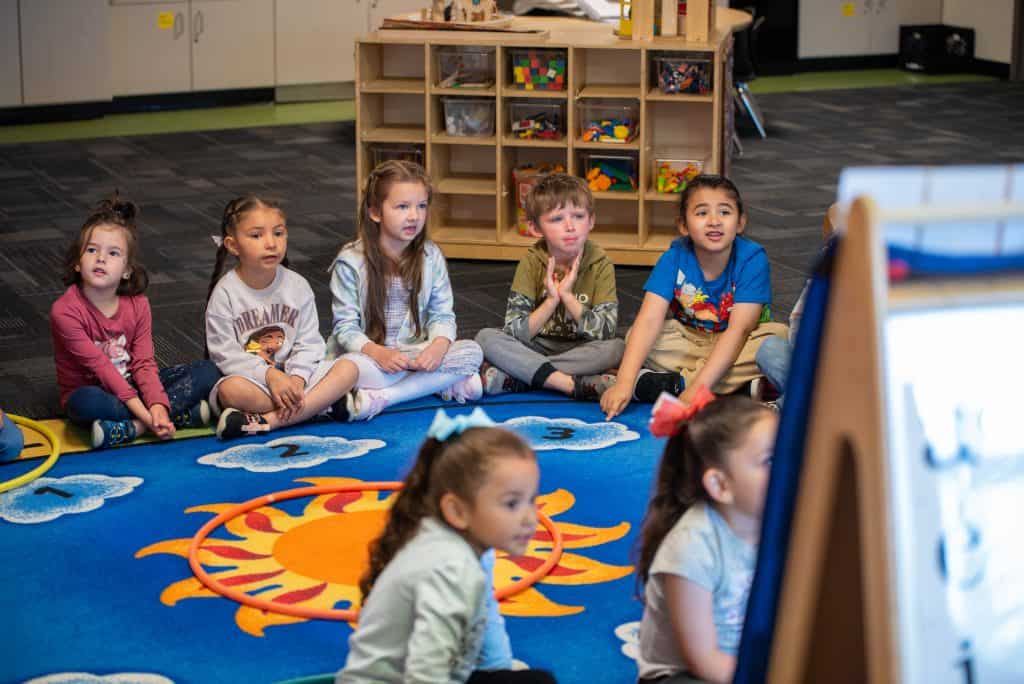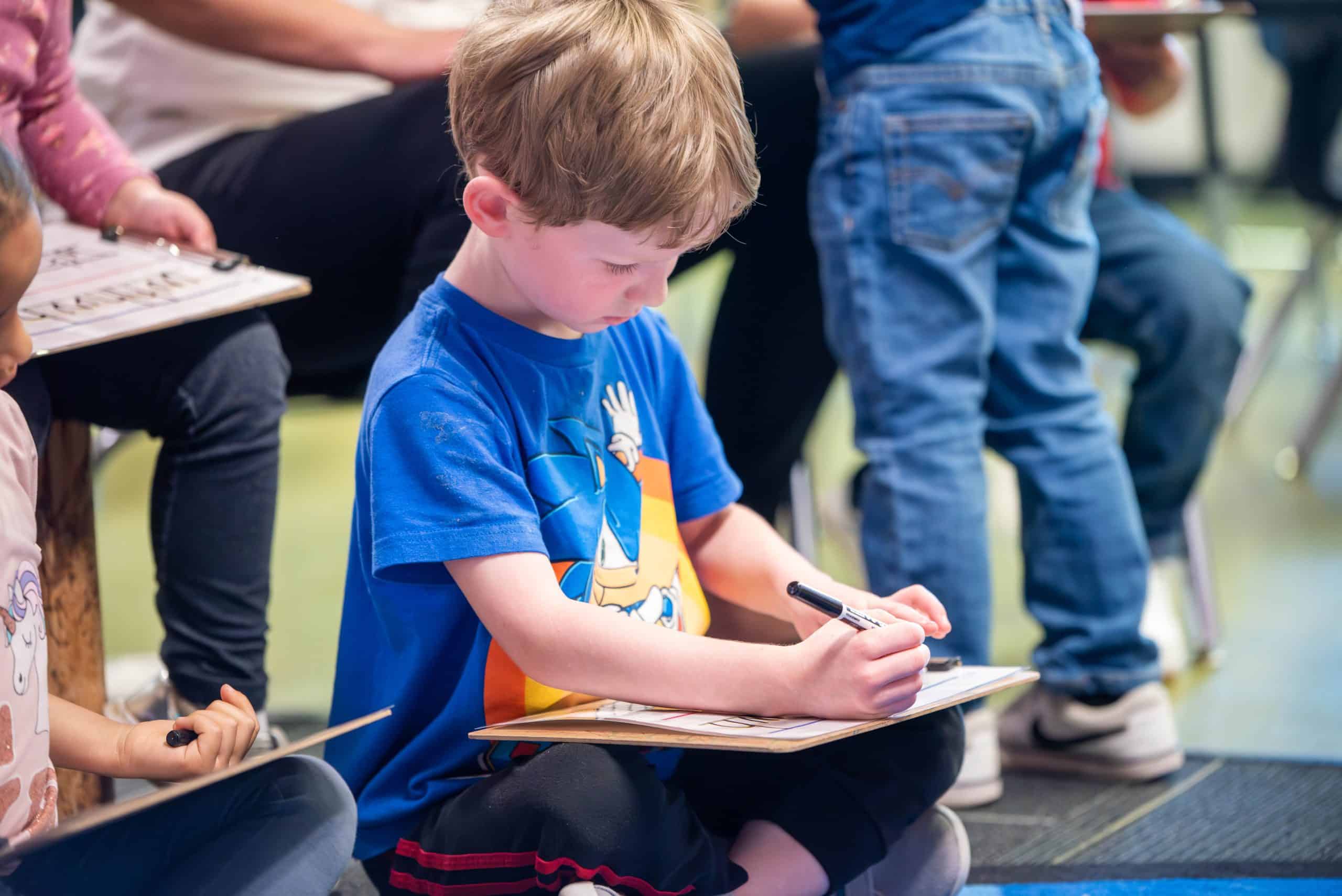Timberline’s preschool program is dedicated to preparing students for success beyond kindergarten, integrating academic and social-emotional learning to ignite their curiosity. Through hands-on exploration, students develop foundational skills in literacy, math, science, and social-emotional development.
Jeslyn Reckinger’s journey to becoming a preschool teacher has been fulfilling and inspiring. “Every day, I am reminded of the profound impact we have on these young minds and the importance of fostering a love of learning from the very beginning,” says Reckinger. Reckinger began her career at Timberline PK-8 after earning a bachelor’s degree in sociology, supplemented by coursework in psychology, from the University of Colorado at Boulder, and a master’s degree in elementary education with a focus on early childhood education from the University of Colorado at Denver.
Influenced by the Reggio Emilia approach, Reckinger emphasizes children’s natural curiosity and desire to learn. “We believe that every child is unique and capable of reaching their full potential,” she shares. “Our program is designed to support their individual growth and development.”
Timberline PK-8’s preschool program is designed to prepare children both academically and socially for kindergarten. “We offer a rigorous curriculum, expecting most students to write their names, engage in simple math, and start reading early words by the end of the year,” Reckinger noted. The program’s success is attributed to its comprehensive approach, which combines academic rigor with a strong emphasis on social-emotional development. Collaboration is key for the overall success of the program, and the preschool teachers work closely with gifted and talented teachers, STEM teachers, librarians, and other specialists.

In order to spark curiosity and enthusiasm for learning, Reckinger customizes activities to suit her students’ individual interests. “We craft engaging learning experiences based on what they enjoy,” she stated. This involves incorporating activities such as counting, sorting, and letter-sound exploration through play-based learning. Students also engage in hands-on experiments such as with their use of the Innovation Center’s Plant Wave device, which allows students to delve into plant biology while integrating STEM principles into their learning experience.
Reckinger emphasizes the importance of creating a supportive environment by recognizing and respecting each student’s uniqueness. The curriculum is adjusted to cater to different learning styles and to encourage individual growth. “I ensure that play areas in the classroom are accessible to all students, promoting constructive play and collaboration,” she said. Additionally, Reckinger advocates for a “check-in” process during conflicts, where students express their actions and feelings, take ownership, and work together to find solutions. This process demonstrates to students that each one is valued and an integral part of our community,” she added.
The preschool program actively engages parents in their child’s educational journey. Building strong relationships with students and families of diverse cultural and linguistic backgrounds is a priority for Reckinger. She ensures that all materials and communications are translated into home languages and presents lessons in both English and Spanish to support language development from the start.
Reflecting on her role as a preschool educator, Reckinger shares, “What I find most rewarding about teaching preschool is witnessing the boundless curiosity, kindness, and resilience of my young students. I feel so honored that families are willing to let me teach their young children and care for them. I love getting to know each child both uniquely and in the context of their families and cultures.”

